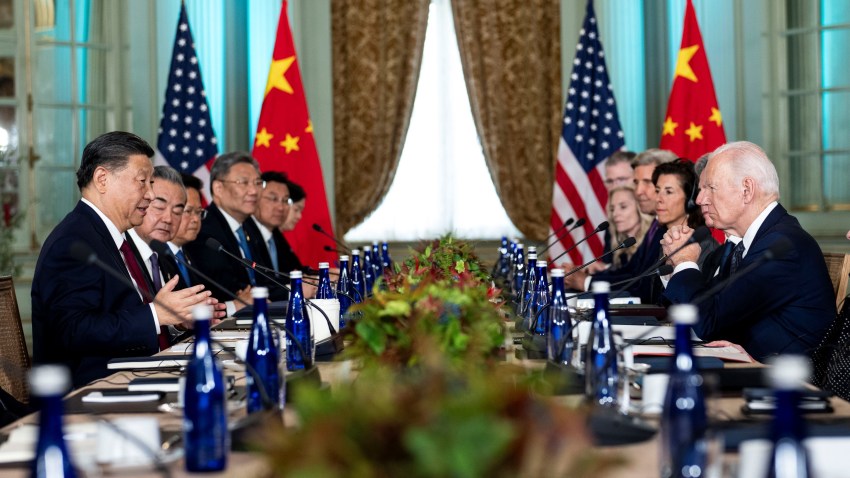The consensus view among the U.S. foreign policy establishment for the past several years has been that the U.S. and China are engaged in “great power competition,” often referred to as simply GPC in Washington discourse these days. That competition now seems to extend to anything and everything, from semiconductors, batteries and electric vehicles, to wielding influence in the Middle East and Africa, shaping the rules of the global order and even topping the Olympic medal count.
This prism of competition reflects concerns over China’s rise that are now rampant in Washington, Europe and Asia, even making their way into discussions at the G7 Summit. These concerns have in turn fueled a host of second-order debates, such as the actual size of China’s military budget, the state of its economy and the sustainability of its domestic system, which is a mix of autocratic control and selective free-market capitalism. There is even some question as to whether China is now actually in decline rather than still ascendant.
But what explains all the alarm over China’s rise? Is it actually a threat to the U.S., or are these concerns all in the heads of U.S. policymakers, a pernicious form of groupthink? One way to phrase the question is to ask, as a recent Foreign Affairs forum put it, “What does America Want from China?” An alternative, and perhaps clarifying phrasing, is to ask, What is Washington’s ultimate goal? Because without knowing that, it will be impossible for the U.S. to ever know if it has won its competition with China.

